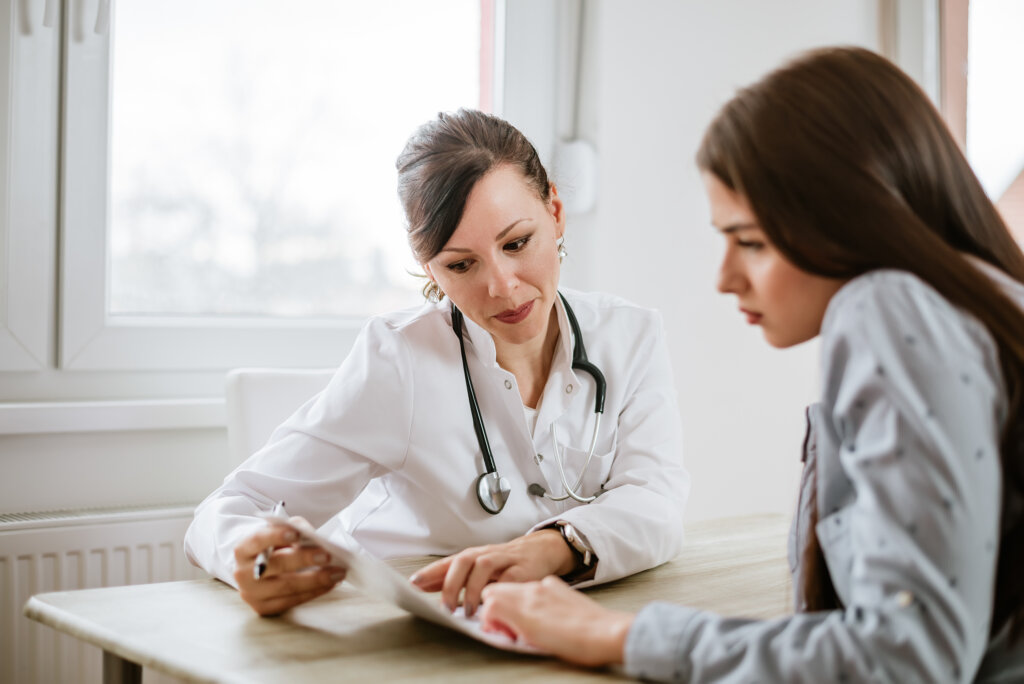What is endometriosis, and how do I know if I have it?
Endometriosis is a chronic condition that affects millions of women worldwide, yet it often goes undiagnosed due to the variability of symptoms and their commonality with other conditions. It occurs when tissue similar to the lining inside the uterus, known as the endometrium, starts to grow outside the uterus, causing a myriad of symptoms that can impact a woman’s quality of life significantly. Here, we outline 10 prominent signs of endometriosis to help raise awareness and encourage those who may be suffering in silence to seek the medical attention they need.
Symptoms of Endometriosis
1. Painful Periods (Dysmenorrhea)

One of the hallmark signs of endometriosis is experiencing painful periods. This isn’t just typical menstrual cramps; it’s pain that can start before menstruation and extend several days into it. Women may describe the pain as severe cramping or stabbing that can also radiate to the lower back and abdominal area.
2. Heavy Menstrual Bleeding (Menorrhagia) or Bleeding Between Periods
Women with endometriosis may notice their menstrual bleeding is heavier than normal. In some cases, they might also experience bleeding or spotting between periods, which is not typical for them.
3. Pain During Intercourse
Pain during or after sex is a common symptom of endometriosis. This pain is often described as deep pain and is different from the discomfort that might be associated with a lack of lubrication or vaginal muscle tension.
4. Pain with Bowel Movements or Urination
For some people with endometriosis, bowel movements or urination can become painful experiences, especially during menstrual periods. This is due to the endometrial-like tissue causing inflammation and irritation in nearby areas.
5. Gastrointestinal Issues
Symptoms such as diarrhea, constipation, bloating, and nausea, especially during menstrual periods, can also signal endometriosis. These gastrointestinal symptoms are often mistaken for IBS (Irritable Bowel Syndrome).
6. Infertility and Endometriosis
Endometriosis is found in 20-40% of women who are infertile. While not all women with endometriosis will experience infertility, it is a significant symptom and one of the reasons many seek medical investigation.
Endometriosis affects fertility in several ways. The condition can cause inflammation and the formation of scar tissue, which can affect the ovaries, fallopian tubes, and the implantation of the embryo. Additionally, endometriosis can impact egg quality and interfere with the sperm and egg meeting or the embryo’s ability to implant in the uterus.
However, it’s important to note that having endometriosis does not mean you cannot have children. Many women with endometriosis can conceive naturally or with the help of fertility treatments.
7. Chronic Fatigue

Many individuals with endometriosis report experiencing chronic, unexplained fatigue that does not improve with rest. The reasons for fatigue are not entirely understood but are thought to be related to chronic pain and inflammation.
8. Lower Back Pain
Persistent lower back pain that may occur at any time during the menstrual cycle, not just during periods, can be a symptom of endometriosis. This pain is often severe and debilitating.
9. Leg Pain
Some with endometriosis experience shooting or stabbing pains in their legs, often associated with their menstrual cycle. This pain can affect mobility and daily activities.
10. Immune System Disorders
There’s an observed link between endometriosis and autoimmune disorders, though the relationship is not fully understood. Women with endometriosis may be more likely to have autoimmune diseases, allergies, and other immune system disorders.
Recognizing Endometriosis and Seeking Treatment
Recognizing these signs is the first step toward getting a proper diagnosis and treatment. If you’re experiencing one or more of these symptoms, it’s crucial to consult with a provider who specializes in endometriosis. Diagnosis typically involves a detailed medical history, physical examination, and imaging tests like ultrasounds. In some cases, a laparoscopy—a minimally invasive surgery—is required for a definitive diagnosis.
Treatment for Endometriosis

Treatment for endometriosis can vary depending on the severity of symptoms and whether you wish to become pregnant. Options include pain management through NSAIDs (non-steroidal anti-inflammatory drugs), hormonal therapies to reduce or eliminate menstruation, and surgical options to remove endometrial-like tissue.
In addition to medical treatments, lifestyle changes, and support groups can be beneficial for managing symptoms and improving quality of life. Diet modifications, regular exercise, stress management techniques, and peer support can all play a role in a comprehensive treatment plan.
What are my fertility treatment options if I have endometriosis?
For women with endometriosis looking to conceive, a variety of fertility treatment pathways offer hope and solutions tailored to each unique situation:
- In Vitro Fertilization (IVF): IVF is a fertility treatment technique that involves external fertilization of eggs, followed by embryo transfer to the uterus, ideal for those with moderate to severe endometriosis.
- Surgery: Surgical intervention such as laparoscopy can excise endometriosis tissue, potentially enhancing fertility by diminishing inflammation and clearing blockages.
- Ovulation Stimulation: Medications like clomiphene citrate (Clomid) and letrozole (Femara) can trigger ovulation if it does not occur naturally or allow for the ovulation of more than one egg at a time. This may be appropriate for initial treatment if there is a desire to stay more conservative.
- Intrauterine Inseminations (IUI): Direct insertion of sperm into the uterus during the ovulatory phase, often in tandem with ovulation-stimulating drugs.
- Frozen Embryo Transfer (FET): Embryos are frozen for subsequent transfer, a strategy that might improve pregnancy rates for endometriosis patients.
- GnRH Agonists: These are used to decrease estrogen levels temporarily, shrinking endometriosis lesions before undergoing fertility procedures.
- Assisted Hatching: Enhancing implantation odds by thinning the embryo’s outer layer, this technique can complement IVF procedures.
- Donor Eggs or Embryos: When endometriosis severely impacts egg quality or after repeated IVF failures, donor eggs or embryos may offer a viable path to pregnancy.
- Gestational Surrogacy: For individuals with severe endometriosis where fertility treatments have been unsuccessful or those for whom pregnancy poses significant health risks, surrogacy offers an alternative pathway to parenthood, enabling the genetic connection to a child through a gestational carrier (surrogate).
Collaborating with a fertility expert is key to navigating these options. This ensures a strategy that aligns with your endometriosis severity, personal health, and fertility goals. With the right approach, many individuals facing endometriosis can achieve their dream of parenthood.
Connect with ORM Fertility to Start Your Journey to Parenthood
Endometriosis is a complex condition with a wide range of symptoms that can impact every aspect of a woman’s life. However, with increased awareness and advances in treatment, it’s possible to manage the symptoms and lead a fulfilling life. If you suspect you have endometriosis, don’t hesitate to connect with us to learn more about your options. Early diagnosis and treatment are key to managing symptoms, preventing complications, and preserving fertility.



